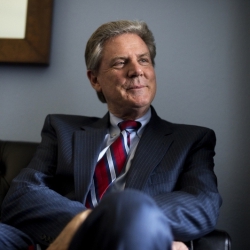US Representative Frank Pallone (D-NJ) introduced a bill in the House of Representatives which would repeal the longstanding sports betting ban, the Professional and Amateur Sports Protection Act (PASPA). The bill is called the Gaming Accountability and Modernization Enhancement Act, or the GAME Act.
Pallone has been pushing his 26-page bill in the halls of Congress for about six months. The GAME Act has been assigned to the House Energy and Commerce Committee and the powerful House Judiciary Committee for consideration. GAME Act has been assigned the designation HR 4530.
The office for Rep. Pallone released a statement on the GAME Act, stating that HR 4530 is “intended to remove the federal obstacles to legalized gambling at the state level. It does not create a federal framework for gambling and instead allows states that choose to legalize and regulate sports betting and/or online gambling to do so.”
HR 4530’s Political Support
Currently, Frank Pallone is the only sponsor of HR 4530. To have a chance for success, Rep. Pallone will need to find at least one co-sponsor on the other side of the aisle. The Democratic congressman is well known for his support of the gambling industry, which has a big role in Atlantic City, but he will need significant Republican support to pass the bill in a GOP-controlled House of Representatives.
Despite the current divide in American politics, gaining bipartisan might be a realistic possibility. Many Republican lawmakers have expressed skepticism about the federally-mandated gambling bans, because of their own concerns about overarching federal oversight and state’s rights issues. Prominent Republicans like Sen. Rand Paul and anti-tax advocate Grover Norquist spoke out against Restore America’s Wire Act (RAWA), a bill sponsored by Sen. Lindsey Graham, Sen. Marco Rubio, and former Rep. Jason Chaffetz. Rawa would have banned online casinos and poker sites at the federal level.
In fact, Frank Pallone understands that the bill still has time to ripen. Given the provocative nature of the bill, many GOP members are not likely to vote for a bill that promotes gambling during an election year. Pallone likely does not intend to push the bill until the results of New Jersey’s sports betting appeal (“Christie vs. NCAA“) at the U.S. Supreme Court is known. The decision might not come until June 2018, though it could be announced anytime in the months between now and then.
Anticipation of PASPA’s Repeal
Thus, the GAME Act is a placesetter for any attempts by Congress to respond to a Supreme Court decision on sports betting. If the nine justices vote in the majority for New Jersey’s attempt to strike down PASPA as unconstitutional based on equal standing and Commerce Clause considerations, then Congress would need to pass a law to create the framework for how sports betting law would act in the United States.
Gov. Chris Christie said back in the summer that he hoped to see legal sports betting take place in New Jersey by the summer of 2018. The plan is to have regulated sportsbooks in Atlantic City casinos and the Monmouth Park racetrack in Oceanport by the time the next NFL season begins.
How GAME Act Would Work
Rep. Pallone’s GAME Act would repeal all aspects of the 1992 PASPA law. It would leave most other federal laws which affect sports gambling alone, though it would affect the 1961 Wire Act and the 2006 UIGEA in certain ways.
As for the 1970 Illegal Gambling Business Act and the 1988 Indian Gaming Regulatory Act, the GAME Act would leave those laws intact. To assure that is the case, HR 4530 states it would not apply to existing commercial casino state laws or tribal gaming compacts. In doing so, those acts would be considered off-limits to new federal oversight.
No Commandeering Allowed
HR 4530 notes that “a person or entity acting in accordance with a state’s law regarding gambling matters” could not be charged or prosecuted under federal law. The explicit prohibition of liability or criminality under federal law means the de facto commandeering of state resources to police federal laws which the PASPA currently requires would not be allowed.
That is a major argument New Jersey is advancing in the US Supreme Court: the PASPA law commandeers states to enforce federal law. The anti-commandeering principle in the U.S. Constitution is based on “dual sovereignty” — the idea that the state and federal governments are both sovereign, and one is not subservient to the other.
DFS and eSports Implications
Frank Pallone’s bill includes provisions which would defer to US states similar forms of gaming, such as daily fantasy sports and eSports. While DFS law is well on the way to being settled in dozens of states throughout the land, the implications for eSports gaming is profound.
It is currently illegal in most US states to gamble on electronic sports, the name for organized, professional-level video game and computer game competitions. Online eSports betting is banned in 50 states, with sites like Seattle-based Unikrn being required to offer merchandize and other prizes (instead of cash) in exchange for accumulated Unicoins. While the GAME Act would not legalize online and mobile eSports, it would set the table for efforts by Unikrn and other eSports betting purveyors to lobby state governments for that approval.
Frank Pallone Statement on Sports Betting
That is the main argument Frank Pallone’s office is putting forward — that HR 4530 is updating US federal gaming law for 21st Century game variations. Pallone’s statement read, “The truth is that Americans are already betting up to $400 billion a year on sporting events, but it’s mostly taking place illegally and without consumer protections. It is time to update our laws and bring sports betting out of the shadows. The GAME Act will modernize sports betting regulations and ensure fairness for all states while maintaining transparency and consumer protections.”

